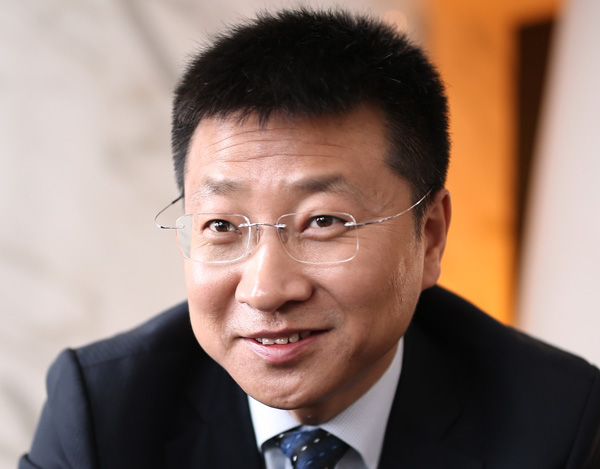Mobike to expand into more countries


Chinese bike-sharing behemoth Mobike Technology Co Ltd said it is planning to step up expansion in more overseas markets, which it believes will account for an ever-larger percentage of its business.
"Mobike has been stepping up its overseas expansion and we are confident that our global business will witness rapid expansion in the future," Wang Xiaofeng, co-founder and chief executive officer of the Beijing-based company, told China Daily.
"Mobike's overseas market share accounts for a small proportion, but we see great potential for growth."
Mobike has aggressively rolled out its service worldwide, with its orange bikes currently crowding sidewalks in more than 200 cities in 12 countries including Singapore, the United Kingdom, Japan and Italy.
The company has entered the US market by extending services to Washington in September, it's seventh market overseas following debuts in Singapore, Malaysia, Thailand, Japan, Italy and the UK.
It has so far launched more than 8.4 million bikes worldwide with more than 200 million global users.
Wang said Mobike has always been focusing on product differentiation and users' emotional connections with the brand, which he believes is the essence of winning customers' hearts.
Bicycle-sharing, one of the hottest industries in China in recent years, saw more than 30 bike-sharing start-ups at its peak.
More than 100 million people in China currently use bike-sharing apps, with companies like Mobike and Ofo operating in more than 100 mainland cities.
According to China's E-Commerce Research Center, China had 18.9 million users of shared bikes by the end of 2016, and the number is expected to hit 50 million by the end of 2017.
As of August 2017, Mobike users had collectively pedaled some 5.6 billion km, replacing some 350,000 autos on the roads a year or cutting more than 1.26 million tons of carbon dioxide emissions, according to the World Wildlife Fund.
"After a year of rapid development, bike-sharing has become an important transport infrastructure and has solved the 'last mile' problem of getting people from public transportation stations to their homes and work places," said Wang.
"It has effectively connected different modes of transport, such as buses, subway and private cars," Wang said.




































